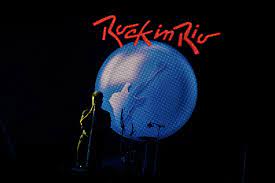12 min to read
Planning an event is an art that plays a role in creating experiences, whether its for corporate functions, family celebrations or community gatherings. It involves elements such as selecting the venue managing guests arranging decorations and effectively managing time. These components work together harmoniously to ensure an event. The significance of organized and strategic event planning cannot be emphasized enough. It not guarantees an execution but also enhances the overall experience for attendees. This meticulous process has the power to transform a gathering into an event that leaves a lasting impression on every participant.
In a world where data is key and audiences are always online (even when the are offline in a concert) event planning teams should embrace a hybrid approach, combining both online and offline event formats. By doing so, they can cast a wider net, reaching a broader audience globally through virtual platforms while simultaneously providing the rich, tactile experiences that physical events offer. This blended strategy ensures comprehensive coverage, catering to diverse attendee preferences and maximizing engagement, reach, and impact.

Define Your Event Goals
Having a vision of what you aim to achieve's fundamental in successful event planning. Understand the purpose of your event and what you want your attendees to take away, from it. This understanding will help you determine activities, venues and vendors to collaborate with. Whether it's a product launch, fundraiser or networking event having defined objectives will guide all your planning decisions. Should you opt for a platform for event management that helps you track your goals advisable? Absolutely! In addition it's important to involve your team, stakeholders and vendors in this process to ensure that everyone is, on the page regarding the event goals. This collaborative approach not saves time and effort. Also brings fresh perspectives and ideas to the table. Importantly it ensures that everyone is working towards achieving the end result.
Next you should focus on creating a budget for your event. Budget planning plays a role in event management. Make sure to consider all expenses, including venue rental, catering, decorations and leave some room for costs. It's worth exploring negotiations, with vendors and suppliers to secure the deals without compromising on quality. A thought out budget will help you avoid any last minute expenses and stay within your financial limits. Additionally having a budget allows you to prioritize and reallocate funds if necessary. For larger scale events hiring an event planner can be advantageous as they can assist in adhering to your budget while negotiating on your behalf. On average event planners can save you up to 20% of your event costs making their services a worthwhile investment.
Considering that you are expected to allocate $5,000 for an event, with 50 guests enlisting the help of a professional can lead to savings of up to $1,000.
Choose an Appropriate Location
When deciding on a venue it's important to ensure that it aligns with the theme and goals of your event. Take into account factors such as its location, capacity, amenities and accessibility. It's also crucial to visit the venue in order to better grasp its layout and overall space. This will assist you in planning logistics for your event including seating arrangements, audio visual setup and the flow of activities. Additionally be mindful of weather conditions if you're considering an event—having a contingency plan in place's essential. When selecting a venue prioritize the comfort and needs of your attendees to guarantee an experience for everyone involved. Furthermore verify that the venue complies with all safety and health regulations to prevent any disruptions, during the event. Venues that adhere strictly to these protocols can provide attendees with peace of mind. Enhance their enjoyment. Lastly from a budget standpoint negotiating with the venue may yield results and potential cost savings.
Create a organized agenda
To ensure an executed event it's important to have a thoughtfully planned schedule. Develop an agenda that encompasses activities, breaks and networking opportunities to keep your guests engaged. Be sure to allocate time, for each activity and incorporate some buffer time in case of any delays. Prior to the event communicate the agenda clearly with all stakeholders, vendors and attendees to set expectations. During the event assign someone or a team responsible for managing the schedule and ensuring everything stays on track. This will help avoid any last minute confusion or disruptions and guarantee an ensure a seamless execution of the event. For example if you're hosting a panel discussion designate a moderator who can guide the conversation and ensure that all speakers adhere to their allocated time slot. A structured agenda can significantly enhance attendees experience by creating an impactful event.

Use technology effectively
Take advantage of event management software and tools that streamline tasks such as ticketing, guest management and event marketing. This can greatly improve your workflow while expanding your events reach. Consider leveraging media platforms not for promoting your event but also for engaging with attendees before during and after the gathering. Additionally employ technology solutions to gather feedback from participants in order to gain insights into their experiences and make improvements, for events.
These tools can also assist you in keeping track attendee data information, such, as their demographics and preferences. This data can prove valuable when planning events. For instance if the majority of your attendees prefer networking opportunities you might want to consider incorporating networking activities into your events. Virtual and hybrid event platforms have gained popularity well offering flexibility and accessibility for event planning. Neglecting the potential of technology could hinder the success of your event. It's crucial to utilize its capabilities.
Prepare for Unexpected Situations
Always have a contingency plan in place. Whether its weather conditions, technical difficulties or last minute cancellations it's important to be ready to handle situations with grace. This may involve having a venue extra equipment, on standby or additional supplies at hand. Make sure your team is well informed about the contingency plan and capable of managing any circumstances that may arise during the event. In cases hiring an event planner or coordinator who specializes in handling contingencies and troubleshooting issues can be beneficial. Additionally having a risk management plan can help mitigate risks and ensure a successful event by addressing medical emergencies, power outages or natural disasters effectively.
Being prepared for circumstances can assist you in navigating any difficulties and guarantee an execution of your event.
Organizing an event can feel overwhelming. By adopting the approach and utilizing appropriate tools it can become a seamless and fulfilling experience. These six valuable tips, from experts will assist you in planning and executing events. Remember to prioritize the needs of your attendees involve your team and stakeholders and have contingency plans in place for situations. Keeping these tips in mind will ensure that your event is not well coordinated but also leaves a lasting impression on your attendees. Whether you're organizing a conference or a social gathering these suggestions are applicable, to any type of event. Will help you achieve your desired outcomes. So go ahead start planning and make your next event a resounding success!
How does Codedesign help clients in the Event Space?
As digital agency based in Portugal, we have a lot of events always going on, especially in the Summer time. We work with several of them with specific digital marketing strategies and implementations. As a digital agency we can provide a multitude of services to an event planning team to enhance their online presence, streamline processes, and maximize event success. Here's how we help them:
-
Digital Strategy Development: Formulating a comprehensive digital marketing strategy tailored to the event's goals, target audience, and theme.
-
Website Design and Development: Creating a user-friendly and mobile-optimized event website that provides essential information, registration capabilities, and interactive features to engage attendees.
-
Search Engine Optimization (SEO): Ensuring the event website ranks high in search engine results to boost organic traffic and increase visibility.
-
Online Registration and Ticketing: Implementing online registration tools and ticketing systems that simplify the sign-up process for attendees.
-
Social Media Promotion: Crafting and executing a social media strategy to promote the event, engage potential attendees, and create a buzz. This can include regular posting, paid advertisements, and influencer partnerships.
-
Email Marketing: Using targeted email campaigns to inform potential attendees about the event, send reminders, provide updates, and even share post-event content.
-
Content Creation: Producing engaging content like blog posts, videos, infographics, and podcasts related to the event to foster interest and awareness.
-
Online Advertising: Leveraging pay-per-click (PPC) advertising and social media ads to target specific demographics and boost event registrations.
-
Analytics and Reporting: Providing real-time data and post-event analysis on website traffic, social media engagement, registration conversion rates, and more to measure the success of digital efforts.
-
Virtual Event Capabilities: In today's digital age, having a virtual component to events is crucial. A digital agency can assist with setting up and managing webinars, live streams, and virtual conference platforms.
-
Mobile App Development: Creating an event-specific mobile app where attendees can check schedules, interact with speakers, network with other attendees, and get real-time updates.
-
Interactive Elements: Incorporating digital tools like polls, quizzes, and interactive Q&A sessions to enhance attendee engagement during the event.
-
Online Reputation Management: Monitoring and managing online reviews, feedback, and mentions related to the event to maintain a positive image.
-
Chatbots and Virtual Assistants: Implementing AI-driven tools on the event website or app to answer common questions, guide attendees, and provide immediate assistance.
-
Post-Event Engagement: Continuing the conversation after the event through digital channels to gather feedback, share event highlights, and promote upcoming events.
By integrating these digital strategies and tools, an event planning team can not only increase attendance and engagement but also measure the return on investment (ROI) and refine future strategies.
Rock in Rio - A Digital Case Study
Rock, in Rio Lisboa, one of the music festivals in Portugal has effectively utilized digital marketing to attract new audiences and enhance its brand presence. The festivals digital strategy revolves around capturing the excitement and allure of music experiences. By offering a range of content such as exclusive backstage footage, artist interviews and enticing sneak peeks they have successfully transported online viewers right into the heart of the festival evoking a genuine sense of FOMO (Fear Of Missing Out).
Their social media presence, on platforms like Rock in Rio Instagram and Facebook revolves around maintaining a narrative that blends the festivals rich history with exciting glimpses of what lies ahead. Engaging content formats like polls, quizzes and interactive challenges encourage two way communication with fans while fostering a community spirit and building anticipation. Moreover strategic collaborations with individuals from the music and entertainment industry have played a role; by partnering with these notable figures Rock in Rio Lisboa expands its reach and taps into their followership base introducing a whole new group of potential attendees to the magical experience offered by the festival.
In addition to their social media efforts email campaigns have proven to be a tool for Rock, in Rio Lisboa.By sending reminders offering deals and providing personalized content they have successfully kept the festival at the forefront of peoples minds ensuring that subscribers are always up, to date. Moreover their website goes beyond being a ticket selling platform; it serves as a hub of captivating stories, galleries and playlists – all crafted to capture the essence of the Rock in Rio experience and entice the most hesitant individuals to consider attending.
Through advertising strategies such as targeted ads and strategic partnerships with media platforms Rock in Rio Lisboa continues to establish its dominance in the digital realm by effectively grabbing the attention of potential festival goers with precision and style. The festival acknowledges that in todays age it's not about selling tickets; it's, about creating a digital encounter that mirrors the excitement of being there live – generating anticipation and ultimately transforming curious onlookers into devoted attendees.

FAQs - Frequently Asked Questions
How can I define clear goals for my event?
Defining clear goals for your event starts with understanding the purpose and desired outcome of your event. It involves pinpointing the specific objectives you want to achieve, whether it's increasing brand awareness, generating leads, or fostering community engagement. A goal-setting framework, such as SMART (Specific, Measurable, Achievable, Relevant, Time-bound), can be instrumental in establishing clear, actionable objectives. For example, if you're launching a product, your goal might be to generate a certain number of leads or sales directly from the event. It's also beneficial to align these goals with your overall marketing strategy to ensure they contribute to your broader business objectives.
What strategies can help in managing an event budget effectively?
Managing an event budget effectively requires a strategic approach that combines foresight, flexibility, and prioritization. Start by outlining all potential expenses to create a comprehensive budget plan. This should include venue, technology, marketing, staffing, and unforeseen costs. Allocating a contingency fund of about 10-15% of your total budget can provide a cushion for unexpected expenses. Prioritize spending based on your event goals, focusing resources on elements that directly contribute to achieving those objectives. Additionally, leveraging digital marketing tools and platforms can offer cost-effective ways to promote your event and engage with your audience, ensuring a higher return on investment.
How do I select the right venue for my event?
Selecting the right venue for your event is crucial to its success and involves several key considerations. First, the venue should align with the event's theme and objectives, providing the right ambiance and facilities to support your goals. Consider the location's accessibility for attendees, including transportation options and parking availability. Capacity is another critical factor; the venue should comfortably accommodate your expected guest list while also providing flexibility for any adjustments. Additionally, evaluate the venue's technological capabilities, especially if you're planning a hybrid event that requires high-quality audiovisual equipment. Considering these factors will help ensure the venue enhances the attendee experience and supports your event's overall success.
Can you provide tips for creating a comprehensive and organized event agenda?
Creating a comprehensive and organized event agenda involves careful planning and attention to detail. Start by outlining the main objectives of your event and the key messages you want to convey. Break down the event into sessions or segments, allocating sufficient time for each activity while also incorporating breaks to keep attendees engaged. It's crucial to select speakers or presenters who are not only experts in their fields but also capable of delivering engaging, valuable content to your audience. Utilize technology to facilitate seamless transitions between segments and to provide attendees with an interactive and accessible agenda. Lastly, ensure there's flexibility in your agenda to accommodate any last-minute changes or unforeseen circumstances.
What are some essential considerations when using technology for event planning?
When using technology for event planning, several essential considerations come to the forefront. First, ensure the technology aligns with your event goals and enhances the attendee experience, whether through engagement tools, event apps, or streaming services for hybrid events. Scalability and reliability are paramount; the technology should perform smoothly under varying loads and conditions. Security is also critical, especially for protecting attendee data and ensuring safe payment transactions. Finally, consider the user experience, choosing solutions that are intuitive and accessible to all participants. Incorporating feedback mechanisms to gather attendee insights on the technology used can also guide future improvements.
How should I prepare for unexpected situations during an event?
Preparing for unexpected situations during an event requires a proactive and flexible approach. Start by conducting a thorough risk assessment to identify potential issues, from technological failures to security concerns. Develop contingency plans for various scenarios, including backup vendors and alternative programming options. Ensure your team is well-trained to handle emergencies and equipped with clear communication channels. Engaging in regular scenario planning exercises can also help your team react more effectively under pressure. Finally, maintain a positive attitude and adaptability, as these qualities can greatly influence your ability to manage unforeseen challenges smoothly.
In what ways can digital marketing strategies enhance event planning and execution?
Digital marketing strategies can significantly enhance event planning and execution by extending reach, engaging audiences, and providing actionable insights. Leveraging social media platforms can amplify your event's visibility and facilitate direct engagement with potential attendees. Email marketing campaigns targeted at segmented audiences can personalize the invitation process and build anticipation. Utilizing SEO strategies ensures your event website or landing page ranks highly in search engine results, increasing visibility. Digital ads across various platforms can also drive awareness and registrations. Additionally, analytics from these digital marketing efforts offer valuable insights into attendee interests and behavior, enabling you to tailor future events for better outcomes.
How can social media be used to promote events and engage with attendees?
Social media is a powerful tool for promoting events and engaging with attendees before, during, and after the event. Create a unique hashtag to encourage sharing and discussions around your event. Utilize event pages on platforms like Facebook to provide updates, share content, and foster community among attendees. Instagram stories and live tweets during the event can offer real-time insights and behind-the-scenes content, enhancing the attendee experience. Engaging with attendees through comments and direct messages can also personalize the experience and build excitement. Post-event, social media can be used to share highlights, gather feedback, and maintain the community's engagement, setting the stage for future events.
What role does content creation play in attracting and retaining event attendees?
Content creation plays a pivotal role in attracting and retaining event attendees by building anticipation, providing value, and establishing a connection. Prior to the event, content such as teaser videos, speaker interviews, and informative blog posts can generate excitement and highlight the event's value proposition. During the event, real-time content updates and live streaming can engage those unable to attend in person. After the event, sharing presentations, key takeaways, and photo galleries can extend the event's lifespan and keep your audience engaged. This continuous content strategy not only attracts attendees but also fosters a community around your event, encouraging repeat attendance and word-of-mouth promotion.
How can analytics and reporting improve future event planning and execution?
Analytics and reporting are critical for improving future event planning and execution by providing insights into attendee behavior, preferences, and engagement levels. By analyzing data from registration platforms, social media engagement, and attendee feedback, you can identify what worked well and areas for improvement. For instance, session attendance rates and engagement metrics can highlight the most valued content and formats. Post-event surveys offer direct feedback on the overall experience, helping to refine future event strategies. Additionally, tracking marketing campaign performance can optimize promotional efforts for better ROI. Leveraging these insights allows for data-driven decision-making, ensuring continuous improvement in your event planning and execution process.

About Bruno GavinoBruno Gavino is the CEO and partner of Codedesign, a digital marketing agency with a strong international presence. Based in Lisbon, Portugal, with offices in Boston, Singapore, and Manchester (UK) Codedesign has been recognized as one of the top interactive agencies and eCommerce agencies. Awarded Top B2B Company in Europe and Top B2C company in retail, Codedesign aims to foster personal relationships with clients and create a positive work environment for its team. He emphasizes the need for digital agencies to focus on data optimization and performance to meet the increasingly results-driven demands of clients. His experience in digital marketing, combined with a unique background that includes engineering and data, contributes to his effective and multifaceted leadership style. |

About CodedesignCodedesign is a digital marketing agency with a strong multicultural and international presence, offering expert services in digital marketing. Our digital agency in Lisbon, Boston, and Manchester enables us to provide market-ready strategies that suit a wide range of clients across the globe (both B2B and B2C). We specialize in creating impactful online experiences, focusing on making your digital presence strong and efficient. Our approach is straightforward and effective, ensuring that every client receives a personalized service that truly meets their needs. Our digital agency is committed to using the latest data and technology to help your business stand out. Whether you're looking to increase your online visibility, connect better with your audience, get more leads, or grow your online sales. For more information, read our Digital Strategy Blog or to start your journey with us, please feel free to contact us. |
CodeDesign is leading:
- Digital Agency
- Digital Marketing Agency
- Digital Ecommerce Agency
- Amazon Marketing Agency

Add comment ×